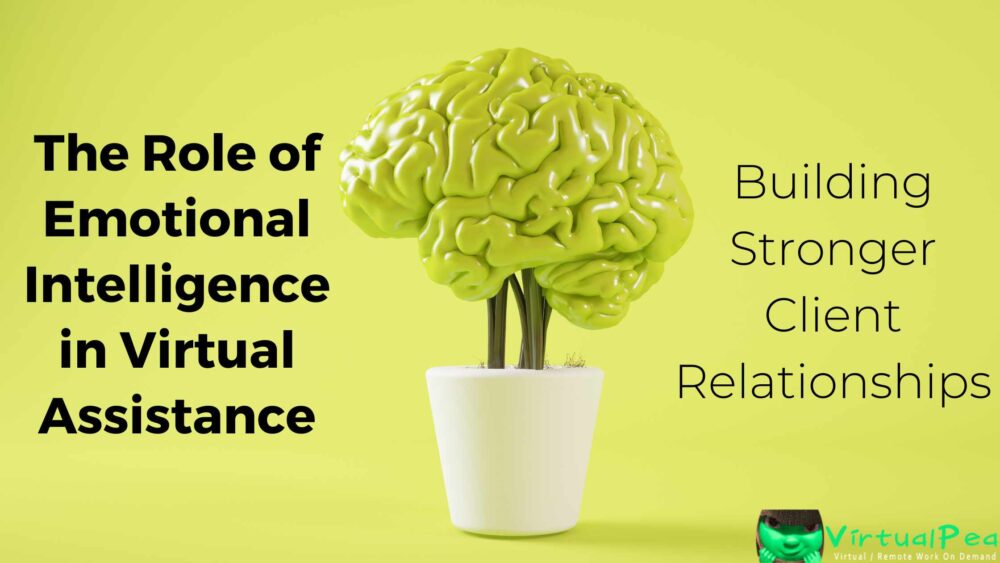
Virtual assistance is more than just completing tasks; it’s about building meaningful relationships with clients. While technical skills are important, emotional intelligence (EI) plays a crucial role in fostering strong connections and delivering exceptional service. In this article, we will explore the role of emotional intelligence in virtual assistance and how developing empathy, effective communication, and strong interpersonal skills can help you build stronger relationships with your clients.
1. Understanding Emotional Intelligence
Emotional intelligence refers to the ability to recognize, understand, and manage emotions—both your own and others’. It involves self-awareness, self-regulation, empathy, and effective interpersonal skills. As a virtual assistant, developing emotional intelligence allows you to navigate complex client interactions with grace and professionalism.
2. Developing Empathy
Empathy is the ability to understand and share the feelings of others. In virtual assistance, empathizing with clients helps you better understand their needs, challenges, and emotions. It allows you to provide personalized support and anticipate their expectations. Actively listen to your clients, put yourself in their shoes, and respond with empathy and compassion.
3. Practicing Effective Communication
Effective communication is vital in virtual assistance. It involves not only conveying information clearly but also understanding the client’s perspective and adapting your communication style accordingly. Use active listening, ask clarifying questions, and communicate with empathy and respect. Clear and transparent communication builds trust and strengthens client relationships.

4. Cultivating Strong Interpersonal Skills
Interpersonal skills are essential for virtual assistants to establish rapport and maintain positive relationships with clients. Develop strong interpersonal skills by being approachable, responsive, and reliable. Show genuine interest in your clients’ businesses and demonstrate your commitment to their success. Building trust and rapport leads to long-term partnerships and satisfied clients.
5. Managing Emotions and Conflict
Virtual assistants often encounter challenging situations that require emotional management and conflict resolution. Emotional intelligence helps you stay calm and composed during stressful interactions. Develop strategies to manage your emotions, practice active problem-solving, and approach conflicts with empathy and a solution-oriented mindset. Turning conflicts into opportunities for growth strengthens client trust and loyalty.
6. Continuous Growth and Learning
Emotional intelligence is a skill that can be developed and enhanced over time. Commit to continuous growth and learning in areas such as self-awareness, empathy, and communication. Seek feedback from clients and colleagues, invest in personal development resources, and stay updated on best practices in emotional intelligence. Cultivating emotional intelligence as a virtual assistant will benefit both your professional success and personal growth.
Emotional intelligence plays a vital role in virtual assistance by fostering stronger client relationships and delivering exceptional service. Developing empathy, practicing effective communication, cultivating strong interpersonal skills, and managing emotions and conflicts are key components of emotional intelligence. By embracing emotional intelligence, you can elevate your virtual assistance skills and create meaningful and lasting connections with your clients.
